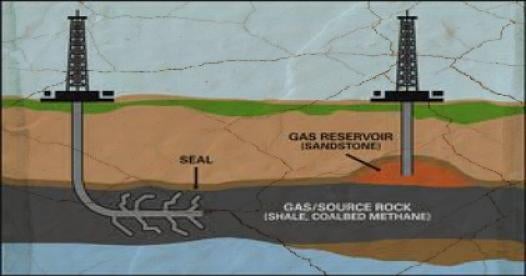Late last month the Seventh District Court of Appeals in Ohio upheld the appropriation of private land for a pipeline that will carry pure propane and pure butane, ruling that such fractionated natural gas liquids still constitute “petroleum” under Ohio’s eminent domain laws. The case is now on appeal to the Ohio Supreme Court, but if left undisturbed, the Court of Appeals decision will provide significant flexibility to developers of the Marcellus and Utica shale formations in Ohio.
The case, Sunoco Pipeline L.P. v. Teter, involves Sunoco’s Mariner East 2 Pipeline, which is proposed to run from Sunoco’s fractionation plant in Scio, Ohio to its distribution center in Marcus Hook, Pennsylvania, with off-ramps at other locations in Pennsylvania. After negotiations for a voluntary easement over land in Harrison County, Ohio fell through, Sunoco petitioned for appropriation under state law and the landowner filed a separate complaint seeking to block eminent domain.
Ohio law allows for the appropriation of private land by companies “organized . . . for transporting . . . petroleum . . . .” In order to appropriate private land, however, the appropriation must be both “necessary” and “for the public use.”
The pipeline at issue was designed to transport pure butane and propane, and may also transport other fractionated hydrocarbons. As a result, a primary issue in the case became whether such wet gas derivatives should be considered “petroleum” under Ohio’s eminent domain law. The statute itself does not define petroleum and the landowner argued that, when the statute was enacted in 1953, butane and propane, both gases at room temperature and average pressure, would not have been considered petroleum. The trial court and now the Court of Appeals, however, ruled that the term “petroleum” is sufficiently flexible to accommodate an evolving treatment of petroleum and to include pure wet gas derivatives.
While acknowledging that appropriation statutes must be strictly construed, the Court of Appeals nonetheless ruled it important to give the statute “a reasonable construction” that incorporated “the practical problems public utilities face as a result of mechanical and scientific progress.” As a result, the Court of Appeals held that the trial court appropriately looked to how the term was used in other statutes and regulations in the State of Ohio, as well as general usage in the industry, to find that “petroleum” currently has an expansive definition that can include “pure hydrocarbons that result from the fractionation process.”
A second key issue before the Court of Appeals was whether Sunoco’s proposed pipeline served enough of a public purpose to give the company the right to appropriate land for its construction. As the landowner noted, the proposed pipeline was not designed to distribute propane and butane within the State of Ohio, but rather to carry it to Pennsylvania for further distribution, much of it potentially overseas. Neither the trial court nor the Court of Appeals found this to be a barrier to serving the public good in Ohio. Noting that the concept of public use is “malleable and elusive,” the Court of Appeals found sufficient likelihood that the pipeline would benefit Ohio to allow for appropriation, citing the possibility that “some products containing Ohio propane and butane will return to Ohio” and that continued development of Ohio’s oil and gas reserves provides sufficient likelihood of future economic benefits to Ohio to justify the pipeline’s serving the public good.
The Court of Appeals also had little problem finding the pipeline to be necessary, as the pipeline constituted a common carrier, which gives rise to a presumption of necessity in Ohio.
The case is now on appeal to the Ohio Supreme Court in Sunoco Pipeline, L.P. v. Teter, Case No. 2016-1486 and a stay has been granted on execution of the Court of Appeal’s judgment.
This is a significant ruling for pipeline companies doing work in Ohio. If the Ohio Supreme Court affirms the decision of the Court of Appeals, pure fractionated hydrocarbons, including gases like butane and propane, will be covered by Ohio’s eminent domain laws for petroleum, thereby potentially impacting development of gas and oil reserves in the Marcellus and Utica shale. An affirmance would also follow a larger trend of cases enforcing the appropriation rights of pipeline companies. With the appeal now before the Ohio Supreme Court, the outcome will be closely watched to see if that trend holds in Ohio.




 i
i


